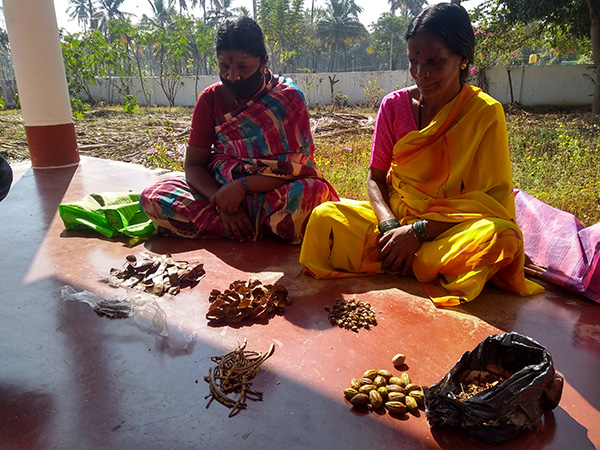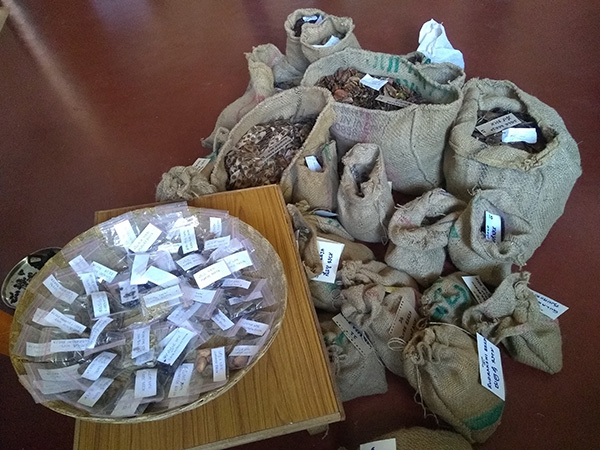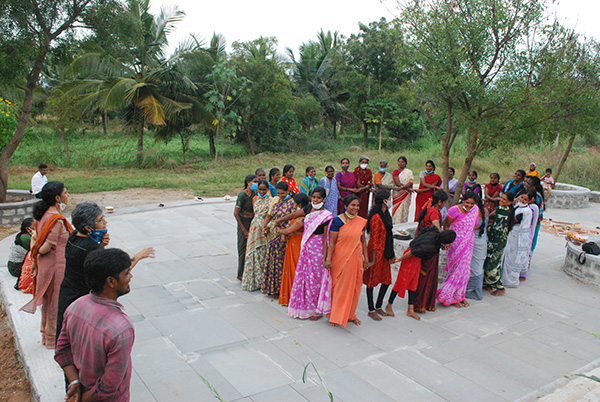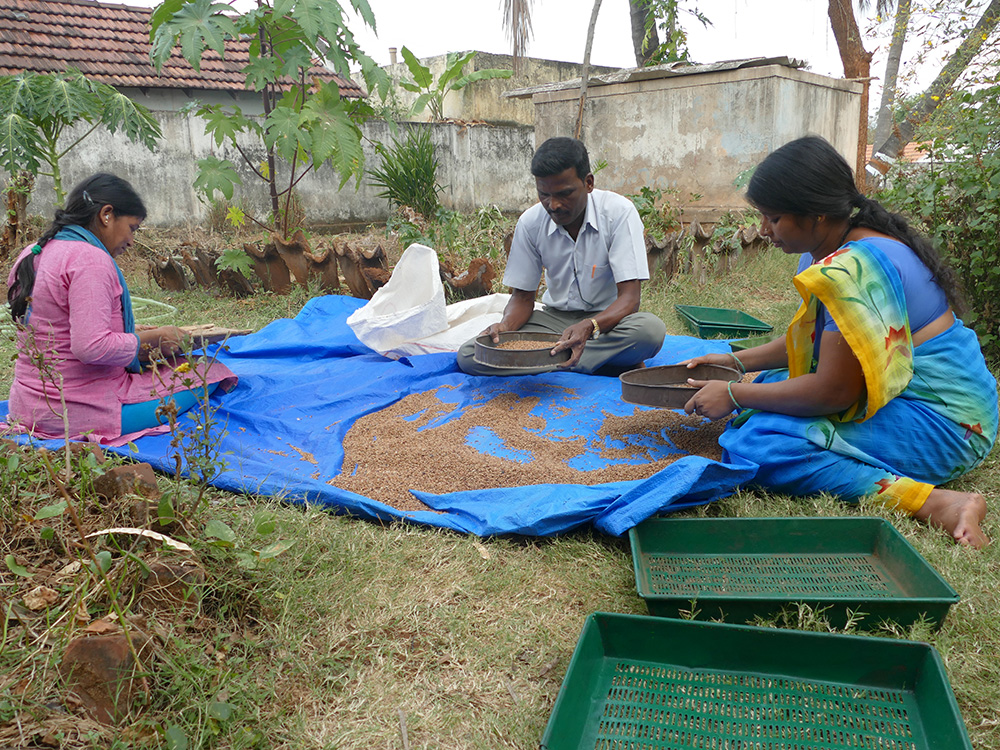Seed conservation and out-reach

Solega Women share their forest seeds

Sorted and Labelled Forest Tree seeds



Sunita Rao, our former Trustee, initiated the seed bank at Punarchith. Over 2023, she and Santhosh Naik also developed a detailed catalog and seed manual which will be the base document for the cultivation and conservation of vegetable seeds. The new seed bank will now be housed at Angarike Maala and will stock both grain and vegetable seeds.
Over the years, the collection, conservation, and cultivation of local and organic seeds has been sustained at both our own home garden at Nagavalli and with a number of women who cultivate small patches of their own. Periodic sharp fluctuations in the climate (either droughts as in 2016-17, and 2023-24 or heavy rains as in 2021 and 2022) and lack of seasonal rainfall has meant that production of vegetable seeds has fluctuated significantly. Since 2020, we have not been able to generate adequate stocks of vegetable seeds. However, some tubers such as yams and turmeric have done well and we have added these to the list. With our interest in dry grains, we will also be attempting to collect and conserve local grains of ragi and other millets, oil seeds (esp niger and seasame), and pulses that are grown in the region.
